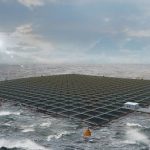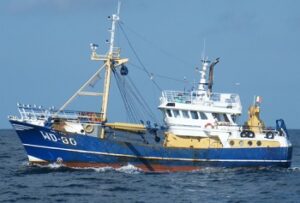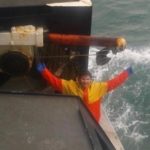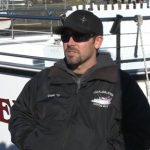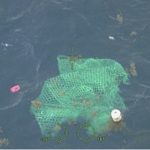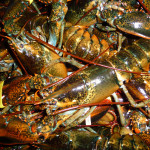Daily Archives: September 26, 2016
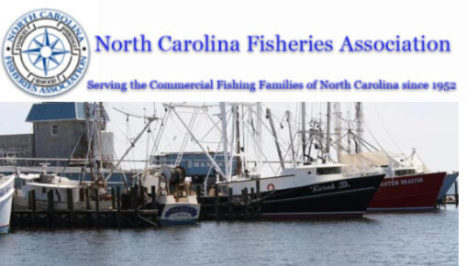
North Carolina Fisheries Association Weekly Update for September 26, 2016
Click here to read the Weekly Update, to read all the updates, Click here 19:18
NFL Hall-of-Famer Warren Sapp’s Tuna Thrill. He’s coming back to P.E.I for more!
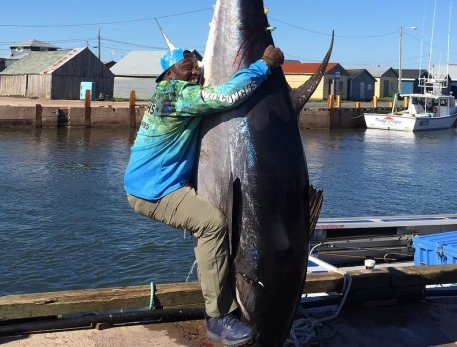 NFL Hall-of-Famer and former Super Bowl champion Warren Sapp appears to have enjoyed his trip to P.E.I., posting pictures of his tuna fishing excursion off North Lake to his Instagram account. More photos, Read the story here 17:46
NFL Hall-of-Famer and former Super Bowl champion Warren Sapp appears to have enjoyed his trip to P.E.I., posting pictures of his tuna fishing excursion off North Lake to his Instagram account. More photos, Read the story here 17:46
N.C. Man Pleads Guilty to Illegal Bass Fishing
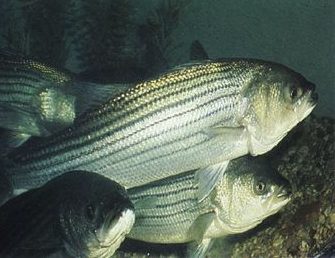 A North Carolina fisherman pleaded guilty Monday to the illegal harvest and sale of Atlantic striped bass in federal waters in 2010. The Justice Department said the charges against Dewey Willis Jr. of Newport, N.C., stemmed from an multi-defendant investigation involving 13 other commercial fishermen. As described in a written notice of Willis’s pleas, the National Oceanic and Atmospheric Administration received a tip regarding the fishermen’s alleged illegal activities involving striped bass, and directed the U.S. Coast Guard to board the fishing vessel Lady Samaira in February 2010. Willis and the other fishermen onboard were charged with violating the Lacey Act, a federal law that prohibits individuals from transporting, selling or buying fish and wildlife harvested illegally. Now that he was entered a guilty plea, Willis faces a maximum sentence of five years in prison and a $250,000 fine. Read the rest here 17:15
A North Carolina fisherman pleaded guilty Monday to the illegal harvest and sale of Atlantic striped bass in federal waters in 2010. The Justice Department said the charges against Dewey Willis Jr. of Newport, N.C., stemmed from an multi-defendant investigation involving 13 other commercial fishermen. As described in a written notice of Willis’s pleas, the National Oceanic and Atmospheric Administration received a tip regarding the fishermen’s alleged illegal activities involving striped bass, and directed the U.S. Coast Guard to board the fishing vessel Lady Samaira in February 2010. Willis and the other fishermen onboard were charged with violating the Lacey Act, a federal law that prohibits individuals from transporting, selling or buying fish and wildlife harvested illegally. Now that he was entered a guilty plea, Willis faces a maximum sentence of five years in prison and a $250,000 fine. Read the rest here 17:15
Burn the gillnets?
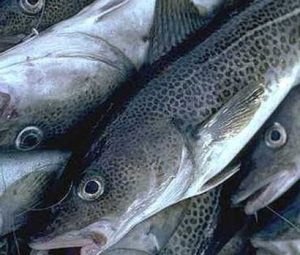 As we move ever closer to a revival of the commercial cod fishery, insiders say it’s essential the focus be on quality over quantity, and that means there may be no place for the controversial gillnet. That was one of the messages delivered Monday in St. John’s to members of the House of Commons Standing Committee on Fisheries and Oceans, and no one said it more forcefully than John Efford. “Take every gillnet in Newfoundland and have a bonfire,” Efford, a former provincial and federal politician with deep ties to the fishery, told the committee. The committee is studying the northern cod stock, and preparing for a day when the resource is once again healthy enough to sustain a large-scale commercial fishery. There’s different opinions on when that might be, but there appears to be unanimous support for a fishery that delivers premium quality products to the marketplace, therefore yielding the highest possible price for those who take part. Efford says there’s no place for gillnets in such a fishery because quality suffers, and the market will not tolerate it. Read the story here 16:16
As we move ever closer to a revival of the commercial cod fishery, insiders say it’s essential the focus be on quality over quantity, and that means there may be no place for the controversial gillnet. That was one of the messages delivered Monday in St. John’s to members of the House of Commons Standing Committee on Fisheries and Oceans, and no one said it more forcefully than John Efford. “Take every gillnet in Newfoundland and have a bonfire,” Efford, a former provincial and federal politician with deep ties to the fishery, told the committee. The committee is studying the northern cod stock, and preparing for a day when the resource is once again healthy enough to sustain a large-scale commercial fishery. There’s different opinions on when that might be, but there appears to be unanimous support for a fishery that delivers premium quality products to the marketplace, therefore yielding the highest possible price for those who take part. Efford says there’s no place for gillnets in such a fishery because quality suffers, and the market will not tolerate it. Read the story here 16:16
FISH-NL: Fish harvesters in Port de Grave curious to see what will come of a push to form alternative to the FFAW.
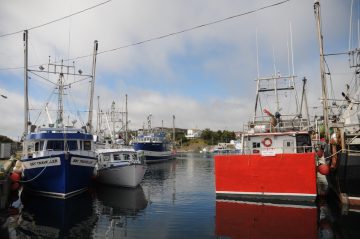 The union drive so far is getting some serious looks. Hundreds of harvesters attended meetings held last week in Corner Brook and Clarenville. Frustrations hinge on a variety of issues that have come up in the industry. One man on the wharf pointed to various fees in place and the exorbitant compensation for union management and staff. On the flipside of that, a pension for harvesters amounts to selling off their enterprise when they’re ready to leave the sea. Meanwhile, those who continue to harvest are finding it difficult to compete against boats owned by plant operators and even the union itself. There’s also some general dissatisfaction over cod licenses granting harvesters the right to catch 2,000-3,000 pounds per week. “Why would a 65-foot or a 70-foot boat go out and get that, and pay a crew? There’s nothing there to do it. And that’s what really stirred all this up, is when the cod fishery came out. People weren’t consulted about it. Two or three (people) higher up in the union come out with all this planning, and there’s no consultations done with fishers … Read the story here 13:30
The union drive so far is getting some serious looks. Hundreds of harvesters attended meetings held last week in Corner Brook and Clarenville. Frustrations hinge on a variety of issues that have come up in the industry. One man on the wharf pointed to various fees in place and the exorbitant compensation for union management and staff. On the flipside of that, a pension for harvesters amounts to selling off their enterprise when they’re ready to leave the sea. Meanwhile, those who continue to harvest are finding it difficult to compete against boats owned by plant operators and even the union itself. There’s also some general dissatisfaction over cod licenses granting harvesters the right to catch 2,000-3,000 pounds per week. “Why would a 65-foot or a 70-foot boat go out and get that, and pay a crew? There’s nothing there to do it. And that’s what really stirred all this up, is when the cod fishery came out. People weren’t consulted about it. Two or three (people) higher up in the union come out with all this planning, and there’s no consultations done with fishers … Read the story here 13:30
Five things Steve Crocker told the standing committee on fisheries and oceans
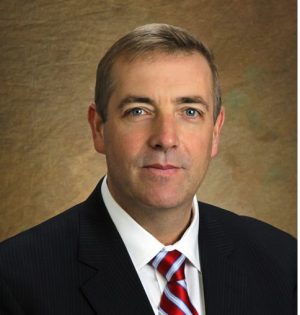 Provincial Fisheries, Forestry and Agrifoods Minister Steve Crocker appeared before the House of Commons Standing Committee on Fisheries and Oceans this morning at the Sheraton Hotel, St John’s. His presentation was part of the committee’s study on the northern cod stock, which stretches from the Grand Banks to the south coast of Labrador. Newfoundland and Labrador has an extremely small share of the current global cod market. Currently, the Newfoundland and Labrador cod fishery primarily produces single frozen fillets and portions in the form of loins and tails,,, The management of forage species such as caplin can be better integrated with the management objective for cod, and the impact of competitors and predators such as seals could also be considered,,, Read the rest here 13:11
Provincial Fisheries, Forestry and Agrifoods Minister Steve Crocker appeared before the House of Commons Standing Committee on Fisheries and Oceans this morning at the Sheraton Hotel, St John’s. His presentation was part of the committee’s study on the northern cod stock, which stretches from the Grand Banks to the south coast of Labrador. Newfoundland and Labrador has an extremely small share of the current global cod market. Currently, the Newfoundland and Labrador cod fishery primarily produces single frozen fillets and portions in the form of loins and tails,,, The management of forage species such as caplin can be better integrated with the management objective for cod, and the impact of competitors and predators such as seals could also be considered,,, Read the rest here 13:11
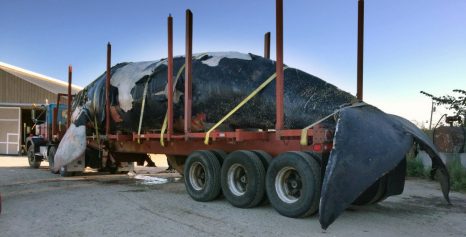
This 43-foot dead whale was trucked through downtown Portland
The National Oceanic and Atmospheric Administration is investigating how an endangered right whale found floating off the Maine coast Friday became entangled in fishing gear that probably caused its death. Jennifer Goebel, a spokeswoman for NOAA’s Greater Atlantic Region in Gloucester, Massachusetts, confirmed Sunday evening that fishing gear ropes were the most likely cause of the North Atlantic right whale’s demise. Goebel said NOAA will try to identify the gear’s owner, but she was uncertain whether punitive action would be taken. If the owner can be identified, NOAA could use the incident to raise public awareness and develop strategies for preventing future occurrences. Read the story here 12:33
Environmental group dislikes new rule for listing, delisting or reclassification under the Endangered Species Act
 The U.S. Fish and Wildlife Service and National Oceanic and Atmospheric Administration (NOAA) Fisheries finalized a rule Monday that changes the process by which species are petitioned for listing, delisting or reclassification under the Endangered Species Act (ESA). Under the rule, first proposed in May 2015, petitioners will be required to notify each state wildlife agency where a species is located at least 30 days before submitting a petition to the federal government. The delay will gives states an opportunity to provide agencies with pertinent information on the species. The new rule also restricts the number of species that can be petitioned for at one time. Under the rule, only one species is allowed per petition. The Center for Biological Diversity was quick to slam the rule, calling it an “impediment” to using the Endangered Species Act. “These new restrictions on citizen petitions are nothing more than a gift to industries and right-wing states that are hostile to endangered species,” Brett Hartl, the group’s director of endangered species policy, said in a statement. Read the story here 10:34
The U.S. Fish and Wildlife Service and National Oceanic and Atmospheric Administration (NOAA) Fisheries finalized a rule Monday that changes the process by which species are petitioned for listing, delisting or reclassification under the Endangered Species Act (ESA). Under the rule, first proposed in May 2015, petitioners will be required to notify each state wildlife agency where a species is located at least 30 days before submitting a petition to the federal government. The delay will gives states an opportunity to provide agencies with pertinent information on the species. The new rule also restricts the number of species that can be petitioned for at one time. Under the rule, only one species is allowed per petition. The Center for Biological Diversity was quick to slam the rule, calling it an “impediment” to using the Endangered Species Act. “These new restrictions on citizen petitions are nothing more than a gift to industries and right-wing states that are hostile to endangered species,” Brett Hartl, the group’s director of endangered species policy, said in a statement. Read the story here 10:34
What Quota? Hawaii Longliners Are Fishing For Ahi Again
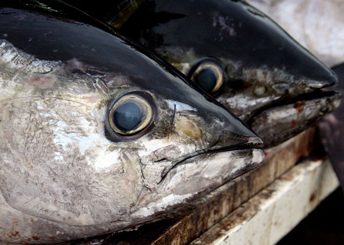 Hawaii’s longline fishermen are back at sea in search of more ahi after extending their quota limit through an agreement with the Commonwealth of the Northern Mariana Islands. The 2016 season had ended early, as it has for the past few years, when the longline fleet in late July hit its 3,554-ton limit for bigeye tuna in the Western and Central Pacific. The deal between Quota Management Inc. President Khang Dang and Northern Marianas Gov. Ralph Torres involves paying the territory $250,000 for 1,000 tons of its 2,000-ton limit. Under the agreement, QMI can assign its rights and obligations to the Hawaii Longline Association, a wholly owned subsidiary of QMI. The association is a nonprofit trade group formed to support the $100 million commercial longline fisheries industry, which includes a fleet of roughly 140 vessels ported in Honolulu. (the author seem to have an axe to grind) Read the story here 09:53
Hawaii’s longline fishermen are back at sea in search of more ahi after extending their quota limit through an agreement with the Commonwealth of the Northern Mariana Islands. The 2016 season had ended early, as it has for the past few years, when the longline fleet in late July hit its 3,554-ton limit for bigeye tuna in the Western and Central Pacific. The deal between Quota Management Inc. President Khang Dang and Northern Marianas Gov. Ralph Torres involves paying the territory $250,000 for 1,000 tons of its 2,000-ton limit. Under the agreement, QMI can assign its rights and obligations to the Hawaii Longline Association, a wholly owned subsidiary of QMI. The association is a nonprofit trade group formed to support the $100 million commercial longline fisheries industry, which includes a fleet of roughly 140 vessels ported in Honolulu. (the author seem to have an axe to grind) Read the story here 09:53
A New England story goes Australian – Fishing industries under pressure
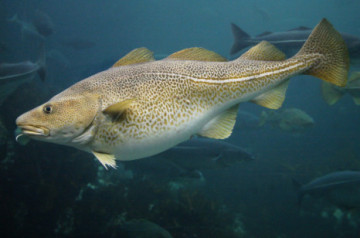 The cod isn’t just a fish to David Goethel. It’s his identity, his ticket to middle class life, his link to a historic industry. “I paid for my education, my wife’s education, my house, my kids’ education; my slice of America was paid for on cod,” said Goethel, a 30-year veteran of waters that once teemed with New England’s signature fish. But on a chilly, windy Saturday in April, after 12 hours out in the Gulf of Maine, he has caught exactly two cod, and he feels far removed from the 1990s, when he could catch 2,000 pounds in a day. The US fishing fleet has dwindled from more than 120,000 vessels in 1996 to about 75,000 today, the Coast Guard says. For the fishermen of the northeastern US – not all of whom accept the scientific consensus on climate change, and many of whom bristle at government regulations stemming from it – whether to stick with fishing, adapt to the changing ocean or leave the business is a constant worry. Robert Bradfield was one of the East Coast’s most endangered species, a Rhode Island lobsterman, until he pulled his traps out of the water for the last time about a decade ago. Read the rest here 09:30
The cod isn’t just a fish to David Goethel. It’s his identity, his ticket to middle class life, his link to a historic industry. “I paid for my education, my wife’s education, my house, my kids’ education; my slice of America was paid for on cod,” said Goethel, a 30-year veteran of waters that once teemed with New England’s signature fish. But on a chilly, windy Saturday in April, after 12 hours out in the Gulf of Maine, he has caught exactly two cod, and he feels far removed from the 1990s, when he could catch 2,000 pounds in a day. The US fishing fleet has dwindled from more than 120,000 vessels in 1996 to about 75,000 today, the Coast Guard says. For the fishermen of the northeastern US – not all of whom accept the scientific consensus on climate change, and many of whom bristle at government regulations stemming from it – whether to stick with fishing, adapt to the changing ocean or leave the business is a constant worry. Robert Bradfield was one of the East Coast’s most endangered species, a Rhode Island lobsterman, until he pulled his traps out of the water for the last time about a decade ago. Read the rest here 09:30






 Attempts to prepare fishers for the share trading program of the NSW fishing industry restructure are a shambles says a local industry representative. Clarence River Fishermen’s Cooperative general manager Danielle Adams, attended a mock or pre-trading share program session in Maclean on Tuesday, where she said it was obvious the NSW Department of Primary Industries was clueless about the direction it was taking the industry. “Most attendees including myself left the session disappointed, angrier, dismayed, some distraught, and with many more questions than when we came,” Ms Adams said. The sessions were part of border-to-border training for fishers to prepare them for the opening of share trading. “The trainer was not from DPI/Fisheries, an obvious ploy to avoid having to answer pertinent questions,” she said. She said the inclusion of mental health line numbers in the DPI’s literature showed the department was aware of impacts it could have. “On seeking further clarification individuals were told to call Beyond Blue or a mental health line,” she said. “Imagine calling the DPI line to gain clarification on your financial future and being told they don’t have the answers but being given a mental health number to call instead – they are aware of the toll this process is taking.
Attempts to prepare fishers for the share trading program of the NSW fishing industry restructure are a shambles says a local industry representative. Clarence River Fishermen’s Cooperative general manager Danielle Adams, attended a mock or pre-trading share program session in Maclean on Tuesday, where she said it was obvious the NSW Department of Primary Industries was clueless about the direction it was taking the industry. “Most attendees including myself left the session disappointed, angrier, dismayed, some distraught, and with many more questions than when we came,” Ms Adams said. The sessions were part of border-to-border training for fishers to prepare them for the opening of share trading. “The trainer was not from DPI/Fisheries, an obvious ploy to avoid having to answer pertinent questions,” she said. She said the inclusion of mental health line numbers in the DPI’s literature showed the department was aware of impacts it could have. “On seeking further clarification individuals were told to call Beyond Blue or a mental health line,” she said. “Imagine calling the DPI line to gain clarification on your financial future and being told they don’t have the answers but being given a mental health number to call instead – they are aware of the toll this process is taking. 



























